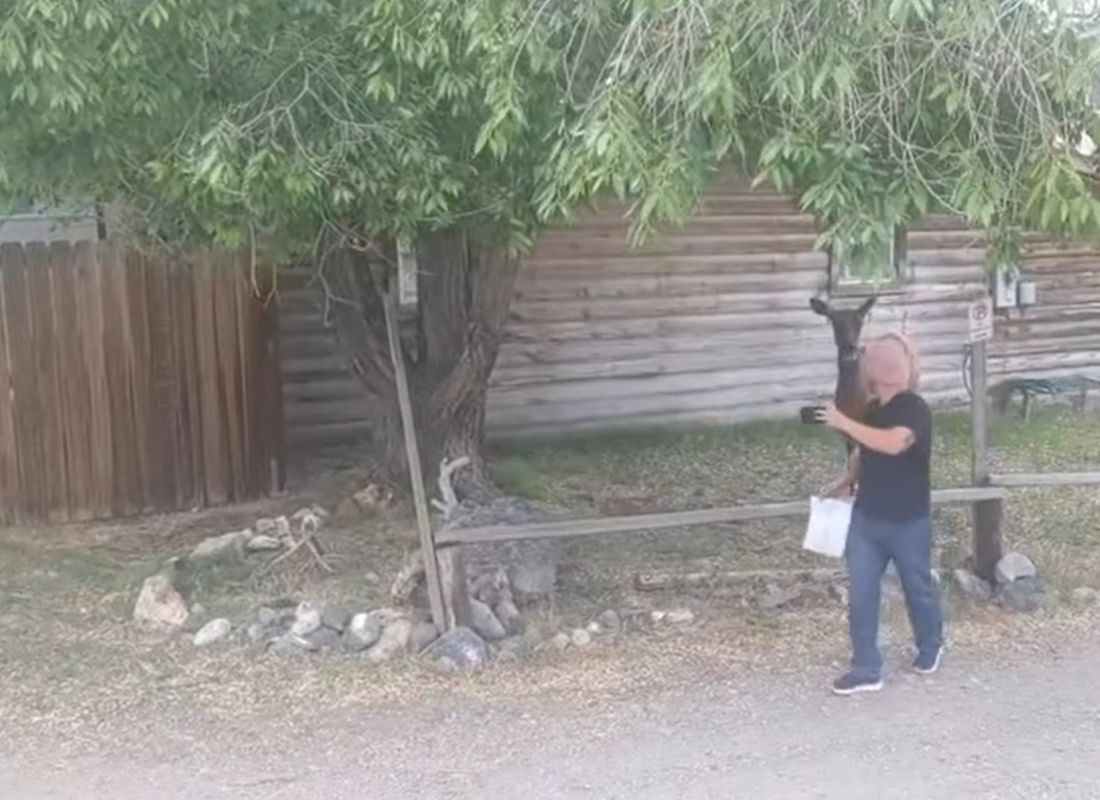Wild animal encounters keep making headlines as brazen tourists tempt fate to get their selfies and Insta stories. Tourons of Yellowstone (@touronsofyellowstone), an Instagram account that documents tourists' ignorant and dangerous behavior, shared yet another park visitor getting a little too close to wildlife as he approaches a cow elk to get a selfie.
The video shows the smug tourist walking up to an elk standing behind a low wooden barrier to take a selfie as the animal stamps its foot and lunges toward him. The man laughs as he walks away from the visibly perturbed elk. Commenters were aghast at the entitled behavior and attitude of the visitor who seemed completely unaware of the potential danger he put himself in.
"He thought that simple log fence was going to protect him," one commenter reacted.
"Her foot stomp is a warning," one commenter said. "Those hooves can tear a person up."
The National Park Service issues safety guidance on observing wildlife in the parks, noting, "an elk may kick you or chase you off if they feel threatened."
Unfortunately, visitors disturbing wildlife seems to be increasingly common in our National Parks. Tourists were chased by a mother elk in Yellowstone when they tried to take close-up pictures of a calf. A visitor to Estes Park in Colorado was lucky to get away without injury after encroaching on a male elk while trying to take a selfie. One tourist was even pinned under a bison in Yellowstone after angering the animal.
"Some people just want to test their luck," one commenter wrote.
Touching, feeding, or otherwise interacting with wildlife can be dangerous for both the people and the animals. The National Park Service explains that animals can become vulnerable or injured from encounters with humans, they can contract fatal diseases from people or pets, and eating food or trash from visitors can disrupt their natural behaviors.
Despite pleas from park officials to respect the wildlife, tourists continue to press their luck.
"It never ends, does it?" one commenter laments. "No wonder they're called tourons."
Join our free newsletter for cool news and cool tips that make it easy to help yourself while helping the planet.









